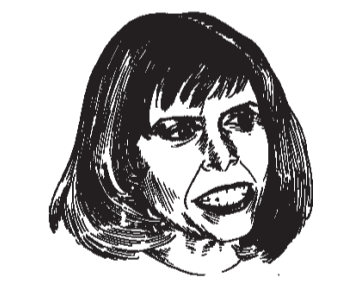The recent film Shattered Glass is a psychological drama that chronicles the downfall of Stephen Glass, the infamous New Republic journalist who fabricated over two dozen magazine articles before being fired in 1998. The film is dramatically absorbing, even (or especially) to a former New Republic intern like myself. Glass joined the magazine as an intern in 1995, a position I had held the previous year. I read his pieces closely, amazed at how he seemed to outdo every intern before or since. Now, of course, I know why.
Shattered Glass briskly recounts the events that resulted in Glass’s undoing. There is the article about a computer hacker who cracks the database of a software firm, only to be hired by the same company to improve its security. There are the journalists at Forbes Digital Tool, the website of Forbes magazine, whose suspicions are aroused after they are unable to verify any of the sources in the hacker piece. And there are the tense confrontations between Glass and Charles Lane, the former real-life editor of the New Republic. Glass responds to Lane’s growing skepticism with increasingly reckless falsehoods, going so far as to create phony voicemail-boxes and a web page for a made-up corporation, before finally breaking down and admitting the whole thing was fiction.
While the film is entertaining, one can’t help coming away with a nagging sense of dissatisfaction. In part this has to do with how much attention Glass has already received. Before the movie there was Glass’s autobiographical novel The Fabulist (in which Glass narcissistically casts himself as a victim); prior to that Glass’s story had been told everywhere from Vanity Fair to CNN. Yet in spite of the sheer volume of coverage, there is a discouraging sameness to much of the discussion around Glass and, more broadly, around journalistic deception in general.
Both the film and the book make much of how Glass evaded the New Republic’s fact-checkers. Ironically, former TNR editor Michael Kinsley once wrote a famous debunking of magazine fact-checking. A fact is considered accurate if it first appeared in the New York Times or other papers—none of which employ checkers themselves. As Kinsley pointed out, the purpose of fact-checking isn’t so much accuracy as being able to blame someone else’s mistake.
By their very nature the film and Glass’s book are character-driven narratives, less concerned with examining the systemic loopholes that permitted Glass to stealthily thrive than they are with positing Glass’s psychological motivations. The same was true of his media coverage, which also took Glass’s pathologies and conflicted...
You have reached your article limit
Sign up for a digital subscription and continue reading all new issues, plus our entire archives, for just $1.50/month.
Already a subscriber? Sign in





